SIGnetwork: September 2023
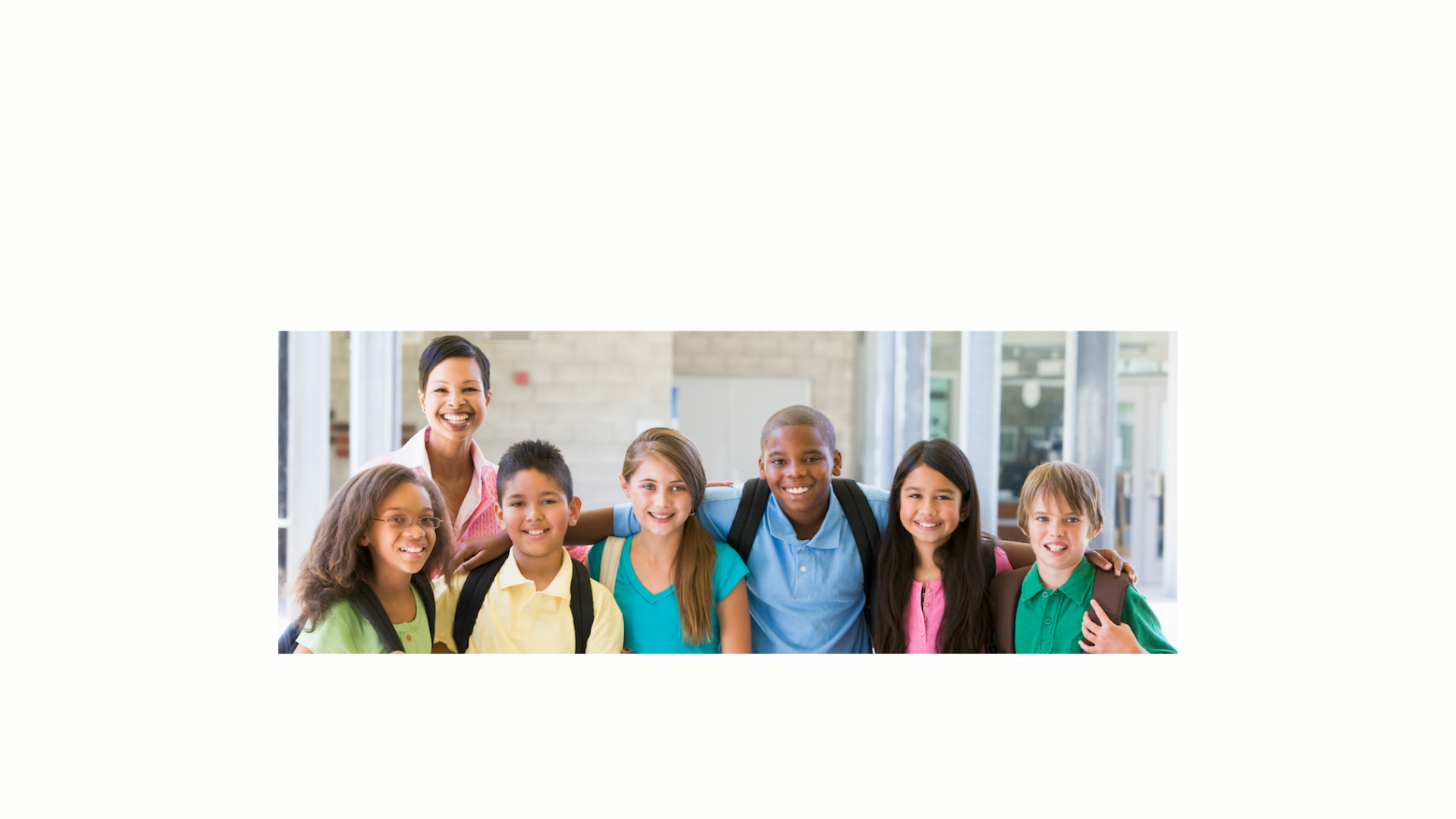
Welcome to the 34th issue of the SIGnetwork Newsletter, published monthly for SPDG projects and their partners to learn about upcoming events, the latest relevant research, TA resources and training, and, most importantly, SPDG impact. We’re glad you're here!
Interested in reading past issues? Scroll to the end of this newsletter for links. Was this email forwarded to you? Subscribe here.
In praise of… the happy hour?
Here in our nation’s capital, people who have been around the block a few times recall with longing the good old days when ideas were knocked around in informal social settings. If it’s a particularly grueling season of government, that person is likely to recall compromises that came into being late at night at a local watering hole.
Of course, not all was good in the good old days, but there may be something to learn from what enabled successful collaboration in the past. In my experience, sitting in a shared physical space may decrease the likelihood of distraction, provide needed social cues, and give opportunities to build on others’ ideas. Milling around a social event allows for informal conversation and a better understanding of the “whole” person you interact with at work. As heuristics are built the level of comfort between people grows.
I believe all of us who make up SIGnetwork have done a good job using virtual meetings to build relationships, learn about ideas and resources that further our work, and support one another. I do wonder, sometimes, if our virtual success has anything to do with previous face-to-face events. Especially those at the Russia House.
Not everyone can attend a live meeting, but if funds allow, I encourage you to bring as many people from your team together for an offsite event, such as the SPDG National Meeting. I regularly hear stories of how an offsite gathering, like a conference, summit, or team meeting, furthered a SPDG project’s efforts. Gaining a better understanding of each other and the work that can be accomplished together is something that may best be achieved face-to-face and we are fortunate SPDG funds can support this.
We may no longer have The Russia House (RIP), but I am hoping The Ugly Mug will meet our needs for that informal social gathering. One thing that I know is that there will be good conversation and we’ll learn more about the people we usually see in a little Zoom square.
See you in October!
Jennifer
News You Can Use

Directors’ Webinar Recording: The Illinois SPDG shared their newly developed fidelity measure and described the system they are building around the measure. Caryn Ward, Co-Project Director of SISEP, shared how SPDGs can lead change in their States.
SPDG National Meeting: We will be in-person in DC October 17th & 18th at the Capital Turnaround. The agenda can be found here. Please register here.
Please plan to fly in on October 16th. Note October 18th will be a half-day with an opportunity to meet with your Project Officer from 12:00-12:45. Please contact your Project Officer to set up a time, as appropriate.
Contact Jennifer Coffey or Kelsey Leib with your questions (Jennifer.Coffey@ed.gov; signetwork@uororegon.edu)


Funding Opportunities

Check out the latest open OSEP funding opportunities.
SPDG Success!

Teaching All Students (TAS), the Tennessee SPDG, is focused on increasing access to content and career readiness instruction to all students, particularly those with complex and cognitive disabilities. School teams composed of a school administrator, district special education director, general education teacher, and special education teacher participate in training and coaching for three years to meet the goals of the TAS initiative.
As a part of the training, school teams identified the work streams, actions, and beliefs foundational to achieving their goals. The teams then committed to planning and scheduling the identified actions first. The training activities were made available to the school teams to use within their building, creating school-wide commitment and sustainability.
The photo below is an example from South Greene High School establishing their commitment at the beginning of this school year. This work is foundational to establishing a culture of Teaching All Students.
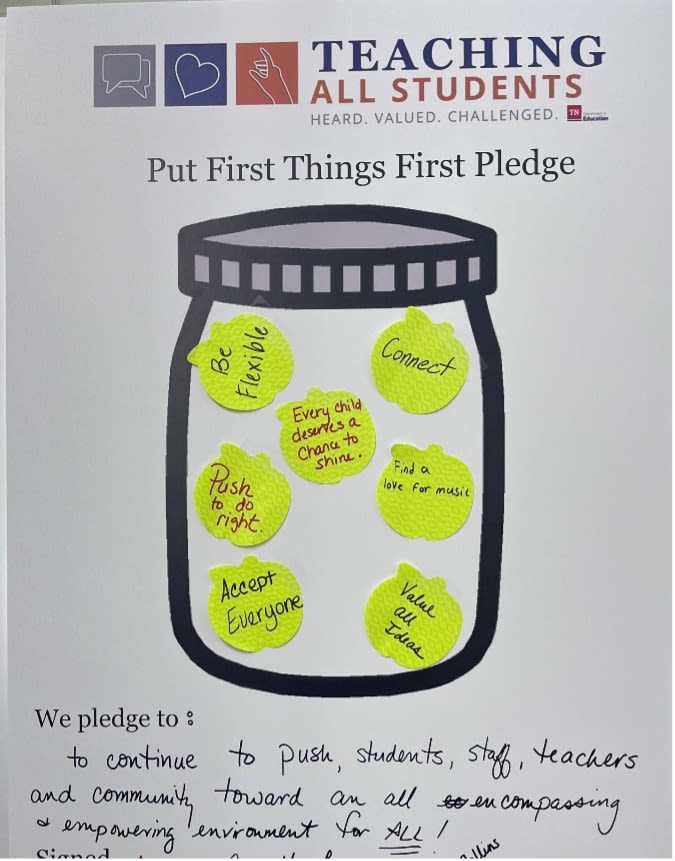
And even more success!
The Minnesota SPDG
Leech Lake Tribe and Deer River Public Schools proudly partnered to organize an event aimed at showcasing the impactful Check and Connect program while actively seeking mentors for the students. This event received immense support from numerous sponsors, each playing a vital role in its success, as you can see from this post on Facebook
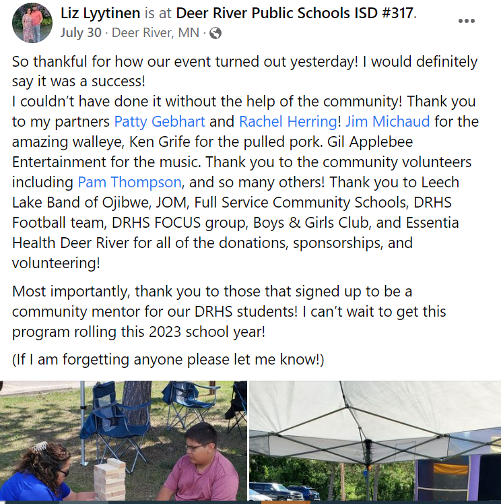
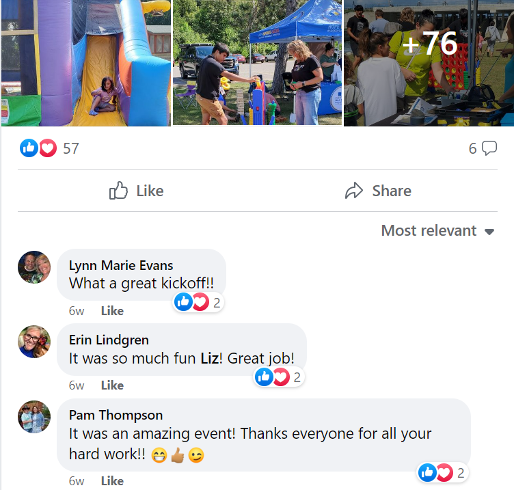
Improving Professional Learning

Professional Learning Communities (PLCs) can improve classroom practice if conversations begin and end with data and strong processes and agreements are in place. These resources may assist your work with PLC’s.
- Solution Tree, free resources to support your PLCs.
- Learning Team Cycle of Continuous Improvement, guide from Learning Forward.
- Learning communities: The starting point for professional learning is in schools and classrooms, article from Learning Forward
Essential PLC Practices
- They meet regularly and take the time to build collegial relationships based on trust and openness.
- They work hard to develop a clear purpose and a collective focus on problems of practice.
- They create routines and rituals that support honest talk and disclosure.
- They engage in observation, problem solving, mutual support, advice giving, and peer teaching and learning.
- They purposefully organize and focus on activities that will enhance learning for both the adults and students in the school.
- They use collaborative inquiry to stimulate evidence-informed
- They develop a theory of action.
- They develop a core set of strategies for connecting their learning to student learning.

Spotlight on OSEP/TA

The Education Sector’s Role in Supporting Digital Equity Act Programs
As part of the Bipartisan Infrastructure Law’s Digital Equity Act programs, led by the U.S. Department of Commerce’s National Telecommunications and Information Administration, all states are developing digital equity plans throughout 2023. As emphasized by the U.S. Department of Education’s call to action, the education sector can be a critical partner to states in connecting learners furthest from opportunities to affordable, reliable high-speed internet and technology tools.
As states release draft digital equity plans over the next several months, education leaders can submit feedback and/or share the public comment opportunity with their networks. State digital equity plans available for public comment will be continuously updated on this page.
Artificial Intelligence and the Future of Teaching and Learning Insights and Recommendations
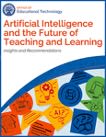
May 2023, Guidance from the US Department of Education
The U.S. Department of Education Office of Educational Technology’s new policy report, Artificial Intelligence and the Future of Teaching and Learning: Insights and Recommendations, addresses the clear need for sharing knowledge, engaging educators, and refining technology plans and policies for artificial intelligence (AI) use in education. The report describes AI as a rapidly-advancing set of technologies for recognizing patterns in data and automating actions, and guides educators in understanding what these emerging technologies can do to advance educational goals—while evaluating and limiting key risks.
Evaluators' Corner

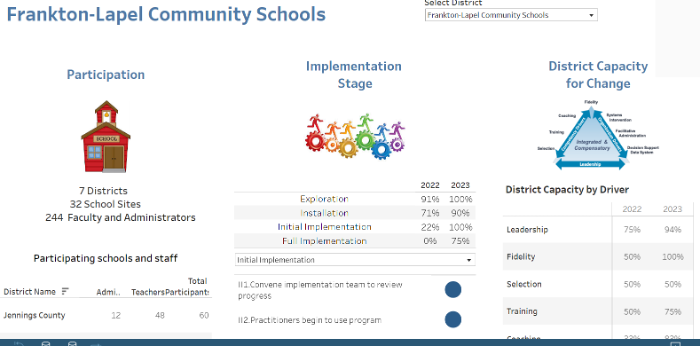
The Indiana SPDG’s district data dashboard includes participation, implementation stage, and capacity data.
Tweets, Podcasts, & Videos of the Month

Setting Up PLCs for Success When You're Just Getting Started with Casey Watts
Buzzing with Ms. B: The Coaching Podcast
During the episode Casey Watts shares ideas for initiating PLCs when they're not in place and gives tips for improving learning communities already established. We discuss the components of effective PLCs, strategies for involving teachers in the process, developing a shared vision and language, and common challenges coaches face when starting a PLC.
If You Have the Time

Effects of teacher professional learning activities on student achievement growth
Key Findings
“The data showed that teacher-centered collaborative activities to learn about mathematics teaching and learning (teacher collaboration and informal communication) seem to be more effective in improving student mathematics achievement than learning activities that do not necessarily involve such teacher-centered collaborative opportunities (professional development programs, university courses, individual learning activities). Teacher-driven research activities through professional conference presentation and participation were also found to be associated with student achievement growth in mathematics.”
Motoko Akiba & Guodong Liang (2016) Effects of teacher professional learning activities on student achievement growth, The Journal of Educational Research, 109:1, 99-110.
https://doi.org/10.1080/00220671.2014.924470
Identifying high-impact practices of learning communities that foster collective professional growth
High Impact Practices
- Build upon a diversity of perspectives.
- Break down instructional practices into actionable instructional moves.
- Select assessment tasks that provide evidence of student learning.
- Use evidence of student learning in a continuous improvement process (the main driver and critical aspect of teaching and learning).
Robin Martin, Susan O’Hara, Joanne Bookmyer & Renee Newton (2020) Identifying High-Impact Practices of Learning Communities that Foster Collective Professional Growth, The New Educator, 16:4, 296-312, DOI: 10.1080/1547688X.2020.1739790
